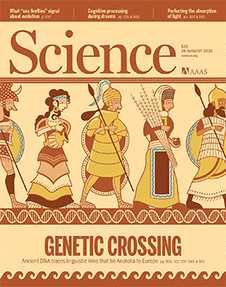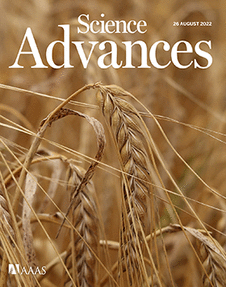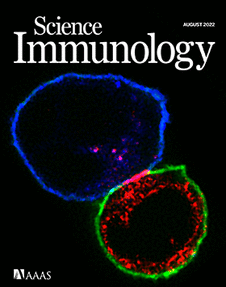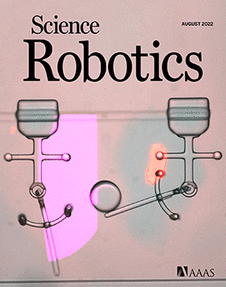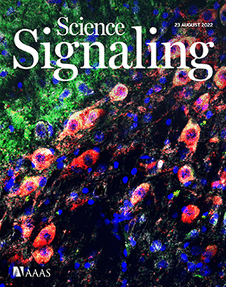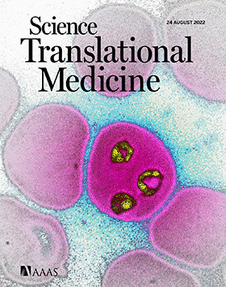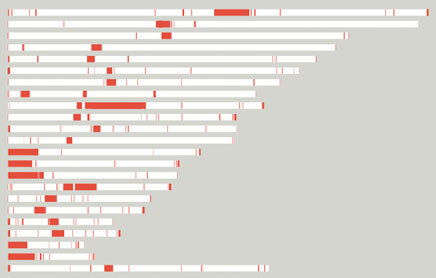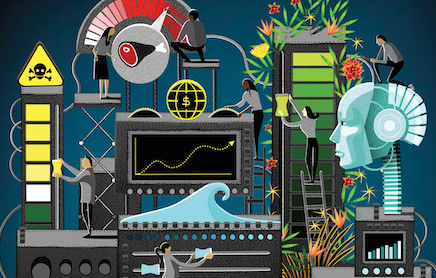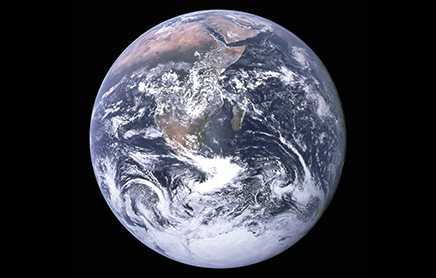The Science journals are striving to provide the best and most timely research, analysis, and news coverage of COVID-19 and the coronavirus that causes it. All content is free to access.
Advertisement
Collections
Browse collections by topic, from the Science family of journals.
A fully sequenced human genome was announced more than 20 years ago. However, owing to technological limitations, some genomic regions remained unresolved. Here, Science and other journals present research by the Telomere-to-Telomere (T2T) Consortium, reporting on the endeavor to complete a comprehensive human reference genome.
Advertisement
Advertisement
In this special collection, we bring together a group of leading conservation related scientists from the different parts of the world to identify grand challenges for biodiversity conservation, conflicts and trade-offs between conservation and utilization, and strategies and policies for sustainable utilization and management of biodiversity resources at global, regional or national level.
Mildred Dresselhaus, the first woman ranked Institute Professor at MIT, devoted her entire career to the study of carbon-based nanomaterials. This special collection is a gift from some of Millie’s former collaborators and colleagues to honor her and her ground-breaking accomplishments.
More than a decade ago, scientists aiming to better understand the effects of genetic diversity in healthy individuals launched the Genotype-Tissue Expression (GTEx) Consortium. The efforts of the GTEx Consortium have led to the development of numerous tools and provide a comprehensive resource for the scientific community. Here, we list the papers published in Science, Science Advances, as well as non-Science journals for the third and final phase of the project, presenting the results from the analysis of the version 8 (v8) GTEx release.
In honor of Science Translational Medicine’s 10th anniversary in 2019, we commissioned a monthly Focus series entitled “Science Transforming Medicine” to commemorate progress made in biomedicine over the past decade.
From July 2018 through December 2019, Science featured papers—a collection entitled “Tomorrow’s Earth”—that examined the state of the world, across such wide-ranging topics as biodiversity, agriculture, medicine, and artificial intelligence, among others.
Each year since 1995, participants in the United Nations Framework Convention on Climate Change meet as a Conference of the Parties (COP) to determine how best to address the rapid changes currently occurring across our global climate. This special collection on transformations in climate and biodiversity was timed to coincide with the COP25 meeting. The collection presents comprehensive review articles and original research by leading authorities from a broad spectrum of scientific domains and documents advances in the scientific underpinnings of interactions between biodiversity and climate.
This special collection on addiction of open-access articles focuses on scientific advances in the treatment and recovery mechanisms of addiction related to four widely misused substances: alcohol, nicotine, cocaine, and opioids.
This special collection on the study of heritage art reflects the extraordinarily diverse set of technologies being used to deepen our understanding of the tools, materials, and processes used by artisans of all persuasions while advancing our understanding of basic scientific principles.
In this special series we present research examining how ancient DNA studies informs upon animal domestication.
The PsychENCODE Consortium presents 11 research papers published in Science, Science Advances, and Science Translational Medicine organized around the themes of functional genomics in the developing and adult brain along with examinations of psychiatric disorders.
This special collection on the science of the high seas brings together a powerful set of ground-breaking research articles to help scientists and policymakers better understand ecological, geological, and other systems that underlie the functional health of global oceans, and inform those concerned with the exploration and use of living and mineral resources. The data and analyses in this collection highlight the challenges in balancing the long-term imperatives of preserving global ocean resources with shorter-term economic and political interests that seek to quickly and vigorously draw value from them.
This collection of research articles bring together powerful documentation of the threats to the region’s resources and the potential consequences of their loss.
In 2003, on the 35th anniversary of Garrett Hardin’s Science essay “The Tragedy of the Commons,” Science’s editors commissioned a series of articles surveying Earth’s living and physical resources and discussing the challenges related to their sustainable management.
